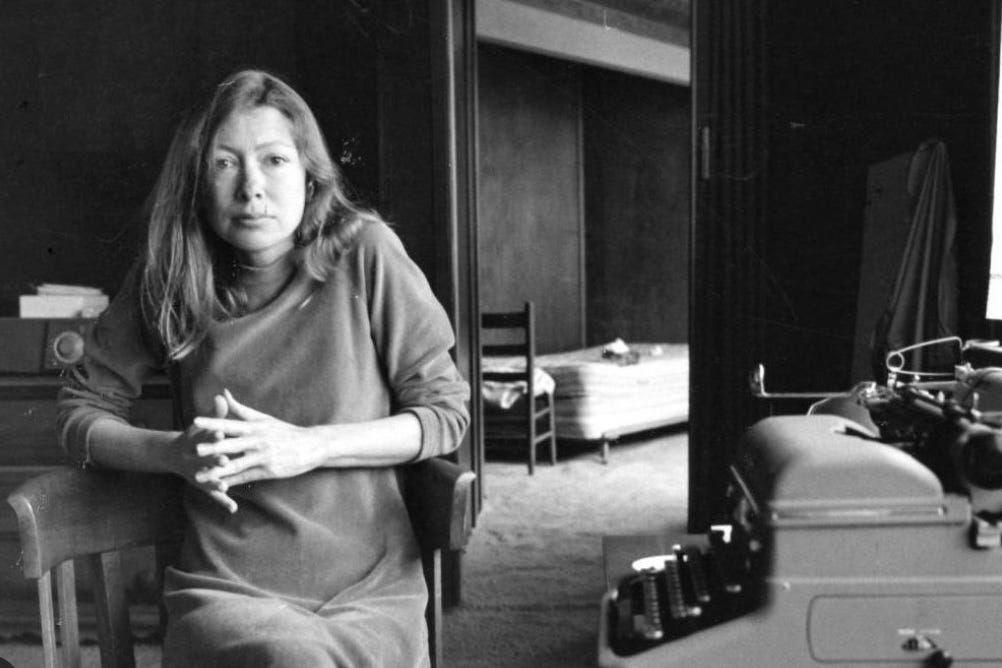So you want to write a non-fiction book?
Or here's some easy ground rules to make a start
Photo of Joan Didion - 1970s
Every person I meet who finds out I’m a published writer tells me the same thing. I want to write a book. On tubes. In the playground. In the office. They are usually very enthusiastic and some even have a clear idea of the thing they want to write about.
I’ve written about how hard it is to make a buck from publishing, how you probably will have to carry on your day job to make meaningful money, how you will feel envious of writers that seem to be more ‘successful’(or perhaps you will write a bestseller right away). Whatever.
Once you know that you want to write a book then my first bit of advice is to start.
You have to write the thing because it won’t write itself. It just won’t. I am sure eventually or even now AI can write a fairly okay non-fiction book but it won’t be the book that you would write. It can’t as that thing sits in your head. It’s floating about like the green, gnarly ghost in Ghostbusters. It’s tapping you on the shoulder and telling you to start. Come on mate. Get going. Write me.
Having taught people writing for a while (online and face to face) I have learnt that there are some common barriers that tend to come up. These are usually - I don’t have enough time, I don’t have enough money, I don’t have enough space at home, I don’t have a clear enough idea…the list goes on. The thing is that the book isn’t going to whack you in the face and tell you how to write it. The circumstances will never be perfect. I wrote my first book whilst commuting to and from a job I hated. I used all the pent up fury (post baby hormones and just general madness at corporate culture) and used it to fuel my writing. When I read that book now I think JEEZ that character is close to a nervous breakdown and NEWSFLASH. I WAS THE CHARACTER AND I WAS ON THE VERGE. But the first bit of advice I have is start writing. I wrote that book on my laptop in breaks from work. I sat down and wrote it on the tube. I wrote it in my head when I took voluntary redudancy and wanted to tell the entire office to DO ONE.
Here’s some more invaluable tips:
Who is your reader? Think about your non-fiction idea and who you are writing for. How old are they? Why will they pick up your book? What benefit will you offer? I would love to tell you that you should write the book without thinking about them but if you always have the reader in mind it will help you shape it to fit. Are they a divorced single mother? Or are they someone who has been out of work for a few years and wants to get back in? What problem will you solve for them?
Keep reading with a 7-day free trial
Subscribe to 'Midlifin' it,' with Anniki Sommerville to keep reading this post and get 7 days of free access to the full post archives.



